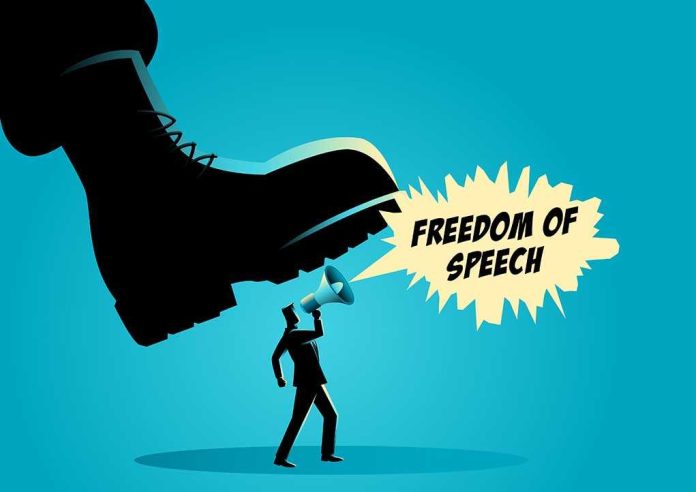🔴 Website 👉 https://u-s-news.com/
Telegram 👉 https://t.me/usnewscom_channel
California’s radical “hate speech” bill threatens to unleash unprecedented online censorship, setting a dangerous precedent for free speech and conservative values nationwide.
Story Snapshot
- California Senate Bill 771 could become the first law of its kind, criminalizing so-called “hate speech” online.
- Critics warn the bill would enable sweeping government censorship and chill dissenting opinions, especially from conservatives.
- Legal experts predict this law could pave the way for similar efforts in other progressive-run states.
- Questions remain about whether such a law would survive constitutional challenges under the First Amendment.
California’s SB 771: A New Front in the Free Speech Battle
The California legislature is advancing Senate Bill 771, a measure designed to police online “hate speech” by granting state authorities broad powers to demand removal of content that officials deem offensive or dangerous. Proponents claim the bill will help curb online harassment and extremism, but critics argue it represents a thinly veiled effort to suppress dissent and silence those with traditional views, especially conservatives.
How SB 771 Threatens Free Expression and Conservative Voices
SB 771’s vague language gives bureaucrats the authority to decide what qualifies as “hate speech,” creating a slippery slope where legitimate political and religious views could be censored. Conservatives have long warned that similar policies—often disguised as efforts to promote “safety” or “inclusion”—are used to target speech that challenges leftist orthodoxy. If enacted, this law would give Sacramento unprecedented power to police online discourse, with the potential to silence critics of progressive ideology and undermine constitutionally protected free speech.
The National Implications: A Blueprint for Expanding Censorship
If SB 771 survives legal challenges, it will become the first law of its kind in America, likely emboldening other progressive states to follow suit. Such legislation threatens to erode the constitutional foundation of open debate and dissent, values at the heart of the American republic. Many conservatives view this as yet another assault on the First Amendment, warning that once government censors gain a foothold, the scope of restricted speech will only grow, targeting everything from opposition to woke agendas to criticism of government overreach.
Constitutional Concerns and the Fight Ahead
Legal analysts believe SB 771 faces significant constitutional hurdles. The First Amendment prohibits government censorship based on viewpoint, and courts have repeatedly struck down laws that chill free expression. However, the bill’s advance is a warning to all who value liberty and limited government: vigilance is needed to defend rights under assault from radical policymakers. With California’s influence over national trends, the outcome of this battle could shape the future of free speech in America.
Sources:
“Wrong-think” criminalized in California
